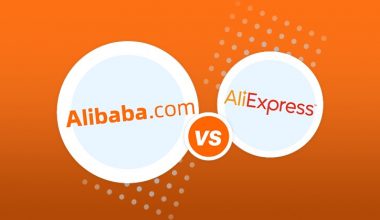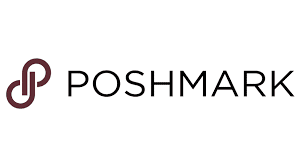As a form of digital marketing approach, paid search advertising enables businesses to pay search engines to elevate their ads on pertinent search engine results pages (SERPs) to increase traffic to their website. Paid search most frequently takes the form of pay-per-click (PPC) advertising. While using a PPC campaign, businesses don’t pay anything until a user clicks on their advertisement. This makes it an inexpensive kind of advertising and guarantees that your adverts are seen by customers who are actively looking for your company’s services or products.
Search engines are where 50 percent of all website traffic comes from. The best method to increase organic traffic is search engine optimization (SEO), and it’s free! This organic approach is free to use. However, there are a lot of fierce rivalries. It is quite tough to rank on search engine results pages (SERPs) for popular terms; it involves a lot of work with an SEO plan, and most importantly, it takes time.
Paid Search
Paid search is a type of digital marketing where search engines like Google and Bing permit advertisers to display advertising on their search engine results pages (SERPs). With paid search, you pay only when someone hits on your advertisement, so you don’t have to pay anything upfront. Unlike more conventional kinds of advertising, it is a measurable and manageable marketing channel as a result. Shopping advertisements are displayed above the search results, while text advertising is displayed at the top or bottom of organic search results.
The SERP (search engine results page), which displays both organic and paid results, is displayed when you enter a query into Google. Before the listing in paid search results is a small green box with the word “ad”; this indicates that a business, like yours, has paid to have its page appear at the top of the list. The Google Adwords search campaign, which charges you every time a user clicks on that link, can be used to accomplish this. With relevant adverts, paid search helps to increase website visitors.
Importance of Paid Search
The top position on the search engine results page for your business is the main advantage of paid search. Paid search will ensure that you appear in position 1 or position 0, with a featured snippet, on the SERP, even though it is always possible to strengthen your organic search strategy to do so. This is particularly crucial for mobile devices because of the lower screen size and increased real estate devoted to sponsored results. There is virtually no distinction between paid and organic search results.
Paid Search Intelligence
The search industry of today is considerably different from that of only a few years ago. You need a thorough picture of your competitive environment for paid and organic search, including a desktop and mobile search for traditional text advertisements and product listing ads, to truly comprehend your organization’s position in relation to your rivals. A detailed set of keyword-level data on important search metrics for both your program and those of your competitors is necessary to get a complete picture of the competitive landscape. For the most complete picture of advertising search behaviors across devices and marketplaces, have access to fast actionable analytics. You can boost performance and engage with customers more effectively if you have a clear idea of which keywords are doing well and what brand owners are doing.
You can utilize the information on the following to make wise judgments regarding your marketing campaigns:
- Keywords (sponsored and organic) (sponsored and organic)
- Advertisement copy
- Click-through rate
- Amount of impressions/voice share
- Quantity and percentage of clicks
- Ad coverage (how often an advertisement appears after a keyword search)
- Average position on the results page of a search
- Rivals’ landing pages
- Using just one or two indicators is insufficient to fully comprehend your marketplace, competitors, or performance. It is also insufficient to make important decisions regarding your search advertising.
Key Takeaway:
Any paid search advertising plan must include search marketing intelligence. Simply said, search marketers like you need to know what’s working and what isn’t in your ads, including how or why your share of voice rises or falls, why your costs change, why you’re losing traffic, etc.
You also need to have a solid awareness of who your major rivals are, what they are doing, and how their actions are affecting the success of your own campaign. By learning about every facet of your competitors’ campaigns using search marketing intelligence, you can benchmark and enhance your performance. You can then use this knowledge to gain the upper hand in the search auction. You can boost website traffic, counteract competitive advantages, make the most of your time and efforts, and gain a sustainable competitive advantage by using paid search intelligence.
Paid Search Advertising
Paid search is a type of digital marketing where advertisers place ads on search engine results pages and pay for clicks on those adverts. By enabling advertisers to expressly advertise on SERPs using pay-per-click or pay-per-view methods, paid search marketing puts this theory into practice.
To increase the visibility of their adverts on relevant search engine results pages (SERPs), businesses can use paid search advertising, a form of digital marketing approach. The most popular kind of paid search is pay-per-click advertising or PPC. You are familiar with paid search advertising. PPC advertising might have even caught your eye while you used search engines like Google to look for information on various subjects. Paid search ads show up on the search engine results page and assist in directing interested visitors back to a company’s website. Whether you want to learn more about paid search marketing or are prepared to launch your first campaign. It’s critical to comprehend PPC adverts and how they benefit your company. Paid search advertising can help you stand out from the crowd and provide more qualified leads to your website.
Benefits of Paid Search Advertising for Mini Businesses
Paid search advertising uses advertisements rather than organic content to increase site traffic. paid search is now the ad format that is expanding the fastest in the retail and eCommerce sectors, according to eMarketer.
You may produce more qualified leads by using paid search ads. PPC advertising helps small businesses increase the number of leads coming to their website, which is one of its perks. More than that, the leads generated by your PPC advertisements are more pertinent.
You can deliberately target the consumer demographics that are most likely to be interested in your brand with PPC advertisements. This indicates that the traffic this advertising brings to your website is more qualified.
PPC ads deliver quantifiable outcomes. Paid search advertising also offers the advantage of measurable outcomes. Every element of your PPC advertising efforts, including:
the number of clicks, the cost per click, and the amount of revenue generated by these clicks
It works well for local searches. The local community is the main market that many small enterprises aim to serve. Good news! Local traffic can be effectively targeted with paid search advertising. Customers will notice your PPC advertisements when they use their mobile devices to look for local stores, and they will be able to click on them to get directions to your location. Moreover, mobile advertising has a call option that enables users to dial your number directly from the advertisement.
Paid Search Analysis
You’ll be able to understand the dynamics of your existing PPC campaign and identify opportunities by exploring your target market. Make a brief list of competing websites to use as a starting point for your PPC approach. To assess their backlink profile and general performance, you can then evaluate their traffic volume and sources. You may learn a lot about your audience and their user behavior by comparing their important metrics to your own.
#1. Determine Your Paid Competitors
To start, you must determine who your paid competitors are. To do this, you must conduct a thorough study to identify your real rivals. This is the initial phase in your overall strategy.
#2. Find the Keywords of Your Competition.
See the keywords that your rivals are bidding on next. You can find the keys to attracting traffic in keywords. Create a long list of keywords because they can assist you in understanding user intent and how your rival is utilizing it for their PPC campaign.
#3. Examine their Advertising Copy
Once you’ve identified your keywords, it’s time to analyze the ad copy of your rivals. This advertisement details what the opposition is providing. Consider how you may incorporate similar calls-to-action (CTAs) into your own PPC advertisements after looking at theirs.
#4. Check out their landing pages
The success of landing pages depends on user conversion. You may determine where the advertising is leading by looking at the pages of your rivals. Analyzing landing pages can teach you a lot and give you a lot of benefits. To provide a fluid and easy customer journey that is tailored to the requirements of your target audience, you must make sure that your ads and landing pages are in line.
Read Also: ORGANIC SEARCH: What is it & How to Improve on Rankings
Paid Search vs SEO
Using advertisements on the search engine results page, paid search seeks people who are using terms linked to your company (SERP). But, SEO makes sure that your website, content, and social media accounts are ready to rank highly in organic search results. PPC and SEO work well together and can even strengthen one another to provide results that are bigger than the sum of their individual parts. In this way, they support one another, boost your financial situation, and contribute to the success of your program as a whole. Your efforts will benefit greatly if you can figure out how to combine these two marketing tactics.
When to Utilize SEO
A series of strategies known as SEO is intended to get a website up to the first page of the main search engines. Because 80% of the traffic that can be produced for any website comes from search engines, SEO is crucial for online businesses. In what circumstances should you, therefore, choose SEO over PPC? The following situations show how SEO would be extremely helpful for an internet business.
When reliable outcomes are required. When consistent outcomes are required. SEO takes a while to develop. That won’t happen overnight or even in a week to rank on the first page of search engine results. It will take some time to rise to the top of the SERPs.
If you want to create an authoritative website. An authority website is a well-known hub of information for a specific market. When people in that niche require specific information, they turn to this website as their go-to resource. Once it gets underway, an authoritative website will be able to drive a lot of traffic just through URL recall.
When you want to make your website more valuable. Websites are digital properties. You must raise the value of your website if you want to sell it for a high price. The worth of anything might arise for a variety of reasons.
When to Utilize Paid Search
When quick outcomes are desired. PPC will produce results quickly very quickly before a wave of visitors floods your pages, you can count the minutes. This is due to the fact that your adverts will be quickly shown for millions of people to see as soon as your PPC campaign is approved (assuming that your bids are high enough to deserve priority placement). The flow of traffic will be almost immediate.
Whenever traffic with a narrow focus is desired. PPC marketing, as opposed to SEO, will let you focus on specific prospects by taking into account their demographics. You can target the age range, gender, income level, educational level, marital status, and more of the individuals who will be able to view your ad using several PPC platforms, such as social networking websites.
What Is Paid Search vs SEO?
Pay-per-click (PPC) marketing and search engine optimization (SEO) differ in that the latter focuses on driving traffic from paid search, social media, and display, while the former concentrates on driving traffic from organic search.
What Is an Example of Paid Search?
Here are a few instances of paid searches:
- Text ads
- Shopping on Google
- App installs
- Native Ads
- Remarketing/Retargeting
- Display Ads
What Is Paid Search vs Organic Search?
In contrast to organic search, which is free, paid search is a method where advertisers pay to serve the advertising. The pricing mechanism and how it will impact you, and your budget, among other factors, are undoubtedly the key differences between organic and paid search.
How Do I Start a Paid Search?
Starting Off a paid search
Step #1: Go to the Google Adwords website.
Step #2. Choose a campaign name and type.
Step #3. Choose the location where the advertisement will be displayed.
Step #4. Establish your daily budget as the fourth step.
Step #5. Add keywords as the fifth step.
Step #6: Create Your Ad.
Step #7: Configure your conversion tracking.
What Are the Types of Paid Search?
- Pay-per-click advertising. One of the most popular forms of pay-per-click (PPC) advertising is paid search marketing.
- Advertisement on displays.
- Advertising in social media.
- PPC advertising retargeting.
- Advertising on price comparison websites.
- Affiliate marketing.
What Is the Purpose of Paid Search?
With the aim of increasing traffic to their website, businesses can use paid search advertising, a sort of digital marketing approach, to pay search engines to position their adverts higher on pertinent search engine results pages (SERPs). The most popular type of paid search is pay-per-click (PPC) advertising.
Conclusion
Paid search may enormously expand businesses when done right. You will gain from the outcomes if you set your goals, predict your outcomes, and stay away from the problems we’ve discussed in this post. Do not forget that your website’s quality in comparison to those of other businesses running advertisements on the same keywords will frequently determine your level of success. Sending traffic is only half the job; conversion is king.
Related Articles
- PPC MANAGEMENT: Detailed With The Top PPC Management
- PPC Advertising: Guide To PPC and Advertising Agencies
- AMAZON MARKETING: How To Build an Effective AM Strategy
- GOOGLE ADS MANAGEMENT: Overview






